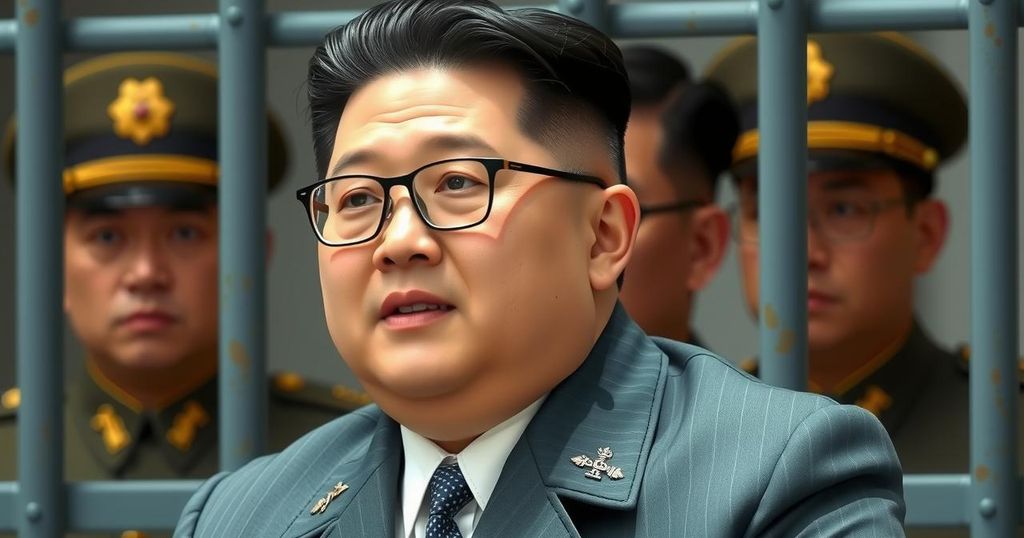Ukrainian President Zelensky proposed a prisoner swap to Kim Jong Un, offering to return captured North Korean soldiers in exchange for Ukrainian troops held in Russia. Simultaneously, Russian shelling in Kherson left thousands without power, and North Korean casualties in Ukraine are reported to be over 3,000. South Korean intelligence is aiding Ukraine in interrogating the captured North Koreans, complicating the ongoing conflict further. The situation emphasizes the intertwined nature of foreign military support and international diplomatic negotiations.
Ukrainian President Volodymyr Zelensky has proposed a prisoner swap to North Korean leader Kim Jong Un, offering to return North Korean soldiers captured in the ongoing conflict in exchange for Ukrainian veterans held in Russia. During his announcement, Zelensky emphasized the inevitability of further captures of North Korean soldiers, indicating an expectation of increased opportunity for exchanges. The Ukrainian military has already secured the capture of two North Korean troops in the Kursk region. Additionally, South Korean intelligence is reportedly aiding Ukraine in interrogating the captured soldiers, who confirmed they were unaware they were fighting against Ukraine, misleadingly told they were on a training exercise.
Simultaneously, Russian military operations continue to impact the Ukrainian city of Kherson, as recent shelling left approximately 23,000 households without power. Kherson’s governor reported extensive damage to infrastructure, amid ongoing attacks from Russian forces. Furthermore, estimates from South Korea indicate that North Korean troop casualties in Ukraine have surpassed 3,000, highlighting the ramifications of their involvement in the conflict, including reports that some troops have been ordered to commit suicide to avoid capture. In light of these developments, Zelensky expressed his willingness to facilitate an exchange for North Korean soldiers who wish to stay in Ukraine, presenting potential options for those seeking to advocate for peace in their homeland.
The situation remains perplexing, particularly regarding the broader implications of foreign troop involvement in the conflict, including the potential role of artificial intelligence in warfare, as urged by British MPs seeking to enhance military capabilities based on lessons learned from Ukraine.
The ongoing conflict in Ukraine has drawn in various supporting forces, including North Korean troops. Recent engagements have revealed the complexity surrounding inter-nation exchanges of prisoners and the diplomatic ramifications thereof. Zelensky’s proposal for a prisoner exchange not only underscores the gravity of the war but also highlights the intricate negotiations that occur behind the scenes. Additionally, the human cost of the conflict continues to rise, with reports of casualties among North Korean forces adding a disconcerting layer to the war and its international implications.
The continuing war in Ukraine presents a dynamic and complex landscape involving potential prisoner exchanges with North Korea as both countries navigate the ramifications of military actions. With a significant number of casualties reported among North Korean troops and the ongoing impact of Russian military actions in Ukrainian territories, the situation remains critical. Zelensky’s strategic offer of a prisoner swap may indicate a shift in international relations amidst the conflict, opening dialogue avenues that could lead to further negotiations and, potentially, resolutions in the future.
Original Source: www.independent.co.uk






